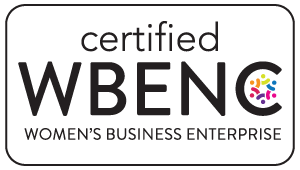The Importance of Recruiting Allied Health Professionals
When one thinks of the healthcare profession, doctors and nurses are probably the first two professions that come to mind. However, a majority of the healthcare workforce is made up of job titles that are part of allied health. In fact, it is estimated that up to 60 percent of healthcare workers are considered allied health professionals.
Allied health professionals can be key members of a team that provides necessary skills and patient care at a hospital or private practice. They work alongside physicians and nurses as instrumental specialists and everyday healthcare workers.
To make sure every aspect of patient care is covered, it is important to know recruitment best practices to attract and retain high-quality allied health workers.
What is allied health?
Allied health is a wide-ranging term that covers many health careers. Its simplest definition includes health professionals who are not medical nurses, physicians or dentists.
According to the Association of Schools Advancing Health Professions, allied health professionals “use scientific principles and evidence-based practice for the diagnosis, evaluation and treatment of acute and chronic diseases; promote disease prevention and wellness for optimum health; and apply administration and management skills to support health care systems in a variety of settings.”
While allied health includes a wide scope, actual allied health jobs can be highly specialized. Allied health professionals can work in diagnostics, medical treatment, chronic illnesses, mental health, nutrition and administration.
Allied health history at a glance
Over the years, allied health has become a more common term in the healthcare industry. Its prominence has grown in part due to the term encompassing more job titles as time goes on and the increasing demand for allied health professionals.
According to All Allied Health Schools, allied health careers like dieticians and occupational therapists date back hundreds of years ago to the 1800s. While allied health roles have existed for centuries, the occupations were not assigned to the allied health classification until the 1900s.
The launch of the Allied Health Professions Personnel Training Act in 1966 and the creation of allied health fields of study at colleges and universities throughout the late 1900s helped establish the credibility of allied health professions.
Allied health practitioners help meet industry demands
Healthcare is a fast-growing industry due to job security, career development and earning potential. While a potential shortage of physicians is projected due to physician burnout, retirement and other factors, the number of allied providers is expected to grow.
Staffing Industry Analysts projected allied health would grow 5 percent in 2023 and again in 2024. According to the Florida Hospital Association, allied health professionals who specialize in diagnosing and treating patients “are projected to grow an average of 13.5 percent between 2020 and 2030.”
Certain sectors of healthcare face future workforce shortages, but segments of allied health professions are positioned to fill in the gaps. Life expectancy, technology advancements and increased chronic illnesses in patients have led to a shifting industry. Allied workers focus on primary care support and can help meet the demand to support physicians, nurses and medical practices.
As nationwide trends continue to change and affect medical staffing, allied health professionals play an important role in patient satisfaction and care. Historically, doctors and nurses have been viewed as essential healthcare workers, but allied providers work with patients by performing a variety of necessary duties.
What are the types of allied health careers?
There are dozens of types of allied healthcare professionals who work in different subsets of the healthcare industry. Their roles include athletic training, medical technology, emergency medicine and more.
Some of the most popular allied health professions are:
- Anesthesiologist assistant
- Athletic trainer
- Dental hygienist
- Dietician
- Emergency medical technician
- Lactation consultant
- Medical assistant
- Occupational therapist
- Physical therapist
- Physician assistant
- Speech-language pathologist
Because of the versatility of allied health and the large number of professions that make up the sector, it is likely your healthcare organization can benefit from hiring these providers.
Allied health employees can work in:
- Hospitals
- Schools
- Private practices
- Long-term care facilities
- Clinics and laboratories
- Rehabilitation practices
- Dental practices
How to recruit allied health professionals
Whether you are looking to recruit allied health professionals for your organization or you are an allied health provider yourself, knowing the essential traits to look for in candidates is the first step.
A great deal of allied health involves primary patient care and day-to-day interaction with patients. To be an exemplary provider for patients, the top allied health candidates will stand out on an interpersonal level. They possess empathy, patience and strong communication skills. They should also display adaptability and problem-solving skills to handle the complexities of the medical field.
In the competitive healthcare industry, it is not enough to simply recruit top candidates to your organization. To retain healthcare professionals and ensure there are no gaps in patient care, healthcare organizations must understand what draws prospective employees to allied health professions.
Along with the job security that the healthcare industry provides, candidates often seek scheduling flexibility, career growth and job satisfaction. Encouraging a healthcare provider’s passion through while allowing work-life balance can help your organization with employee retention in allied health fields.
Allied healthcare staffing resources
TinkBird Healthcare Staffing is here to help healthcare facilities discover top talent through our national network of locum tenens, travel nurses, allied health professionals and other providers. For a supportive medical staffing experience, contact TinkBird today to bring skilled recruits to your workplace.









